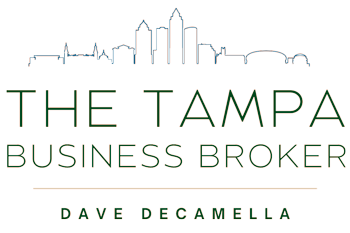
Thinking about selling your Tampa, St. Petersburg or Clearwater area business? It’s a significant decision and an important step toward your next career path, whether it leads to retirement or a new venture. You’ve probably invested considerable time evaluating the advantages and disadvantages. Selling your business is a critical undertaking that requires careful planning, strategic vision, and a thorough grasp of the process. Above all, it’s crucial to find the right buyer for a successful sale and seamless transition. Let’s take a closer look how to assess potential candidates and identify the ideal buyer for your business.
- Financial Proficiency: Start by carefully assessing the financial proficiency of potential buyers, taking into account their liquidity, access to funding, and overall financial health. It’s crucial to ensure that the buyer has the required resources to finalize the purchase to prevent any disruptions in the transaction later on.
- Strategic Alignment: Evaluate the strategic alignment between your business and prospective buyers. Determine how your business complements their overall growth strategy and how they intend to incorporate it into their current operations. Finding a buyer who recognizes the value of your business and has a well-defined vision for its future is crucial.
- Experience and Expertise in the Industry: Target buyers with relevant industry experience or a proven track record in related fields. Their familiarity with your industry’s complexities, market trends, and operational challenges can significantly facilitate a smoother transition and contribute to long-term success.
- Cultural Compatibility: Evaluate the cultural compatibility between your business and prospective buyers. Examine their organizational culture, values, and management style to ensure a smooth integration and minimize disruptions to your company’s existing culture and operations.
- History of Success and Credibility: Review the potential buyer’s past acquisitions and business dealings to assess their history and reputation. Look for indicators of reliability, integrity, and professionalism to minimize risks and build trust during negotiations.
- Long-Term Vision: Evaluate the buyer’s long-term vision for your business after acquisition. Ensure their goals align with your objectives for the company’s legacy, employees, and stakeholders. This alignment will facilitate a smooth transition and maintain the company’s value proposition.
- Transaction Structure: Evaluate the suggested transaction framework and the terms presented by prospective buyers, including the purchase price, payment terms, and any contingent agreements. Make sure the deal structure aligns with your financial goals and risk appetite.
- Communication and Transparency Standards: Evaluate the level of communication and transparency demonstrated by prospective buyers during the due diligence and negotiation phases. Clear and honest communication fosters trust and collaboration, establishing a solid groundwork for a successful deal.
By carefully evaluating these factors, you can identify the perfect buyer for your business, increasing the likelihood of a successful sale that meets your objectives and facilitates a smooth transition for all parties involved. Remember to conduct thorough due diligence, seek professional advice from experts, and stay open-minded throughout the process. Selling your business is an exciting new chapter in your journey, and finding the right buyer can make all the difference. Contact Dave DeCamella, The Tampa Business Broker today to get started!
